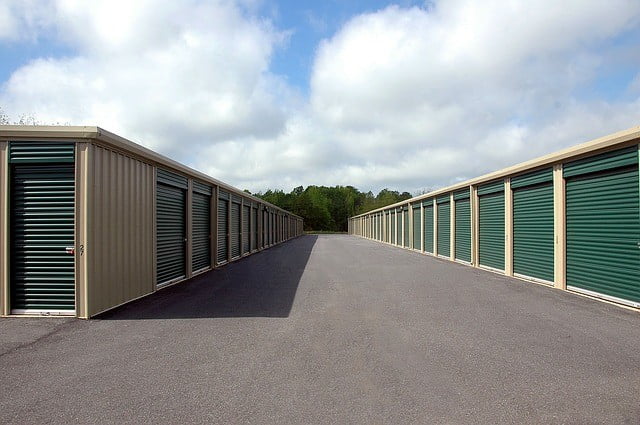Purchasing a property is likely one of the most significant investments you’ll make in your lifetime, so it’s crucial to ensure that you’re making an informed decision. One essential aspect of this process is getting a building inspection completed before finalizing your purchase. A building inspection provides you with a detailed evaluation of the property’s condition, helping you understand any potential issues and risks associated with the investment. This article will delve into the role of building inspections in the property buying process, offering insights into their benefits, potential issues they may reveal, and tips for choosing a professional inspector.
You might be wondering why building inspections are such an integral part of the property buying process. Well, by revealing any hidden defects or structural issues that may not be immediately apparent during a casual viewing or walkthrough, they can save you from costly surprises down the line. Additionally, having a thorough understanding of these potential problems allows you to negotiate better terms and prices with sellers or even walk away from a risky investment altogether. In this article, we’ll guide you through various aspects related to building inspections – from selecting an experienced inspector to tips on how to approach them as a buyer – ensuring that you have all the information needed for making well-informed decisions when purchasing your next property.
Understanding Building Inspections
You’ve gotta understand the importance of building inspections in order to make a well-informed decision during the property buying process. Building inspections are essential in identifying any structural, safety, or maintenance issues that may not be obvious at first glance. They can help you avoid costly repairs down the line and aid in negotiation tactics with sellers. It’s crucial to familiarize yourself with inspection costs, inspection types, and common misconceptions about them.
There are various types of inspections available, such as pre-purchase building inspections (which focus on the overall condition of the property), pest inspections (to detect any infestations), and specialized inspections (such as plumbing or electrical). Inspection costs can vary depending on factors like location, size of the property, and complexity of the inspection required. Don’t fall for common misconceptions like believing all inspectors are alike or that new properties don’t require an inspection—every inspector has their own expertise and even newly-built homes might have hidden defects.
Be prepared to use your building inspection report as a tool for negotiation when purchasing a property. If significant issues arise from the inspection, you could potentially renegotiate your offer or request repairs before finalizing the transaction. Keep in mind that not every defect found will warrant price adjustment—only major concerns should be used as leverage for negotiation tactics. By understanding these aspects of building inspections and debunking myths associated with them, you’ll be better equipped to make informed decisions throughout your property buying journey.
Benefits of Building Inspections
Conducting a thorough assessment of a potential home not only ensures its structural integrity but also can save buyers from costly repairs down the line. One of the primary benefits of building inspections is safety assurance. A professional inspector will examine the property’s foundation, framing, roofing, electrical systems, plumbing, and more to ensure that everything is up to code and safe for occupancy. Any issues or hazards identified during the inspection can be addressed before you move in, providing peace of mind for you and your family.
Financial savings are another significant advantage of having a building inspection completed. By identifying any required repairs or maintenance issues early on, you have the opportunity to negotiate with the seller to either fix these problems or adjust the sale price accordingly. This negotiation leverage can result in substantial savings on your investment. Furthermore, addressing potential issues before they worsen helps protect your investment by preventing further damage and decreasing future repair costs.
A comprehensive structural assessment provides valuable information about the overall condition of a property while offering protection for your investment. You’ll gain insight into areas prone to wear and tear or other concerns that could impact your decision-making process when purchasing a home. It’s essential to understand precisely what you’re investing in so that you can make informed decisions about whether it’s worth pursuing a particular property or continuing your search elsewhere. By seeking out professional guidance through building inspections, you set yourself up for success as both an informed buyer and homeowner who prioritizes safety and financial well-being above all else.
The Role of Building Inspections in the Property Buying Process
When it comes to purchasing a home, having a professional assess its condition plays a crucial part in ensuring you’re making a wise investment and avoiding potential pitfalls down the line. Building inspections help identify property risks that may not be apparent during an initial walkthrough, such as structural issues, pests, or electrical problems. Moreover, understanding these risks can save you money by allowing you to factor inspection costs into your budget and ensure you meet any legal requirements associated with owning the property.
A thorough building inspection also provides valuable information that can be used in negotiation strategies with the seller. For example, if significant repairs are needed due to safety hazards or code violations found during the inspection, you may be able to negotiate a lower price for the property or request that the seller complete these repairs prior to closing. Additionally, knowing about any defects discovered during the inspection enables you to plan for future maintenance expenses and make an informed decision on whether investing in this particular property is right for you.
It’s important to consider inspection timelines when incorporating building inspections into your property buying process. In most cases, it’s essential to schedule an inspection within a specified timeframe outlined in your purchase agreement – typically within 7-10 days after your offer has been accepted. This ensures that any issues discovered can be addressed promptly before closing on the property. By thoroughly understanding potential risks, negotiating effectively based on findings from the inspection report, and adhering to necessary timelines, building inspections play a pivotal role in helping you confidently navigate through each stage of purchasing your dream home while protecting your investment interests along the way.
Potential Issues Revealed by Building Inspections
Don’t underestimate the power of a thorough building inspection – it can uncover hidden issues that could save you from making a costly mistake when purchasing a home. Hidden damages, such as water leaks and faulty wiring, can lead to expensive repairs down the line if left unaddressed. Additionally, an inspection can help you negotiate a lower purchase price or request necessary repairs before closing on the property. While inspection costs might seem like an unnecessary expense during the home buying process, they are crucial in ensuring you make an informed decision and avoid potential financial pitfalls.
A comprehensive building inspection will also assess your prospective home for mold detection and pest infestations. Mold growth is not only unsightly but can pose serious health risks to you and your family if left untreated. Detecting mold early allows you to take necessary remediation steps or reconsider the property altogether if the issue is widespread. Similarly, pest infestations such as termites or rodents can cause significant damage to both your property’s structure and your finances over time. Early identification of these problems gives you the opportunity to deal with them effectively before they become more severe and costly.
Another critical aspect of a building inspection is evaluating structural concerns within the property. Inspectors will examine foundations, walls, roofs, windows, doors, plumbing systems, heating and cooling systems for any signs of wear or damage that could jeopardize their integrity or functionality. They may also look into potential safety hazards such as radon gas levels or asbestos presence in older homes which could require further testing and possible abatement measures if discovered. The knowledge gained through this detailed assessment empowers you to make informed decisions about whether to proceed with purchasing a particular property while taking into account any necessary repair costs or maintenance requirements that may impact its overall value in the long run.
The Importance of Professional Inspections
It’s essential to recognize the value of professional inspections in making well-informed decisions about a prospective home, as they can reveal hidden issues and protect your investment. While inspection costs may seem like an added expense, they’re well worth it considering the potentially costly repairs that might arise from undetected problems. Additionally, certified inspectors possess the necessary qualifications and expertise to properly assess a property’s condition, ensuring that you have all the information you need before committing to a purchase.
Hidden damage is often not visible during casual walk-throughs or DIY inspections, which might lead to unpleasant surprises down the line. Professional inspectors are trained to identify potential issues that could affect your home’s safety, structural integrity, and overall value. They use specialized tools and techniques to thoroughly examine various aspects of a property such as its foundation, roofing materials, plumbing systems, electrical wiring, and more. Moreover, they understand legal implications related to building codes and regulations – knowledge that can help you avoid potential disputes or fines.
By enlisting the services of a qualified inspector for your property buying process, you effectively mitigate risks associated with purchasing an imperfect home. It also provides leverage during negotiations if any significant issues are detected – allowing you either renegotiate for a lower price or request repairs before closing on the deal. Ultimately, investing in professional inspections helps ensure that your new home will be safe and sound while also safeguarding your finances against unforeseen repair costs down the road.
Factors to Consider When Choosing a Building Inspector
Now that you understand the importance of professional inspections in the property buying process, it’s crucial to choose the right building inspector who can provide a thorough and accurate assessment of your potential new home. Several factors should be considered when selecting a building inspector, such as their qualifications, inspection costs, report formats, scheduling inspections, and post-inspection negotiations.
Firstly, consider the inspector’s qualifications and experience in the field. Look for an inspector with relevant certifications from recognized organizations like InterNACHI or ASHI (the International Association of Certified Home Inspectors or American Society of Home Inspectors). Be sure to ask about their experience inspecting properties similar to yours and if they have any areas of specialization. Inspection costs are another essential factor; while cheaper isn’t always better, it’s important to compare prices among different inspectors to ensure you’re getting a fair deal. Keep in mind that some companies may offer package deals that include services like pest or mold inspections at discounted rates.
When evaluating potential inspectors, also consider their report format and how quickly they can complete an inspection. A good report should be detailed yet easy-to-understand with clear explanations on any issues found during the inspection process. You’ll want access to your report within 24-48 hours after completion so you can make timely decisions regarding your property purchase. Scheduling inspections is another crucial aspect – ideally, you should find an inspector who can accommodate your timeline since time-sensitive negotiations often follow an inspection. Lastly, inquire about how they handle post-inspection negotiations with sellers; having an experienced professional by your side during this step will prove invaluable.
By taking these factors into account when choosing a building inspector – qualifications, inspection costs, report formats, scheduling flexibility and expertise in post-inspection negotiations – you’ll be better equipped to make informed decisions throughout the property buying process. With a reliable inspector on your side providing valuable insights into potential issues or concerns within a property purchase, you can ensure a smoother and more successful transaction. So, do your research and choose wisely to protect your investment and make the right decision for your future home.
Tips for Buyers During Building Inspections
As a savvy homebuyer, you can play an active part during the inspection and arm yourself with essential knowledge to make informed decisions about your potential new abode. Proper inspection preparation is key; before the inspection, research the inspector’s qualifications to ensure they are experienced and certified. This will give you confidence in their ability to identify any potential issues with the property. Additionally, familiarize yourself with common problems that may arise during inspections, so you know what to look for when walking through the property with the inspector.
During the inspection itself, don’t be afraid to ask questions and take notes on any concerns or issues that come up. These can be helpful when reviewing the final inspection report and formulating negotiation tactics if necessary repairs or adjustments need to be made before closing on your new home. Understanding what’s included in an inspection report will also help you make sense of it once completed – from structural elements like foundations and roofs to systems such as plumbing and electrical components. Remember, this report should provide you with valuable information that can influence your decision-making process.
After receiving your comprehensive inspection report, review it carefully and consider any post-inspection actions needed based on its findings. If significant issues have been uncovered, discuss them with your real estate agent for guidance on whether renegotiating terms or requesting repairs would be appropriate before proceeding further in purchasing the property. If all is well or only minor fixes are required, use this confirmed knowledge of the property’s condition as leverage when negotiating price or other terms of purchase. By actively participating throughout building inspections and using informed decisions based on qualified inspectors’ input, you’ll be better equipped to secure a safe investment in your future home.
Conclusion
In conclusion, don’t judge a book by its cover when it comes to buying property. A professional building inspection can save you a lot of headaches down the line. It’s crucial in making an informed decision and ensuring your investment stands on solid ground.
So, make sure you choose a reliable inspector and pay attention to their findings. After all, knowledge is power – especially in the property buying process. Stay informed and protect your investment!

















































































0